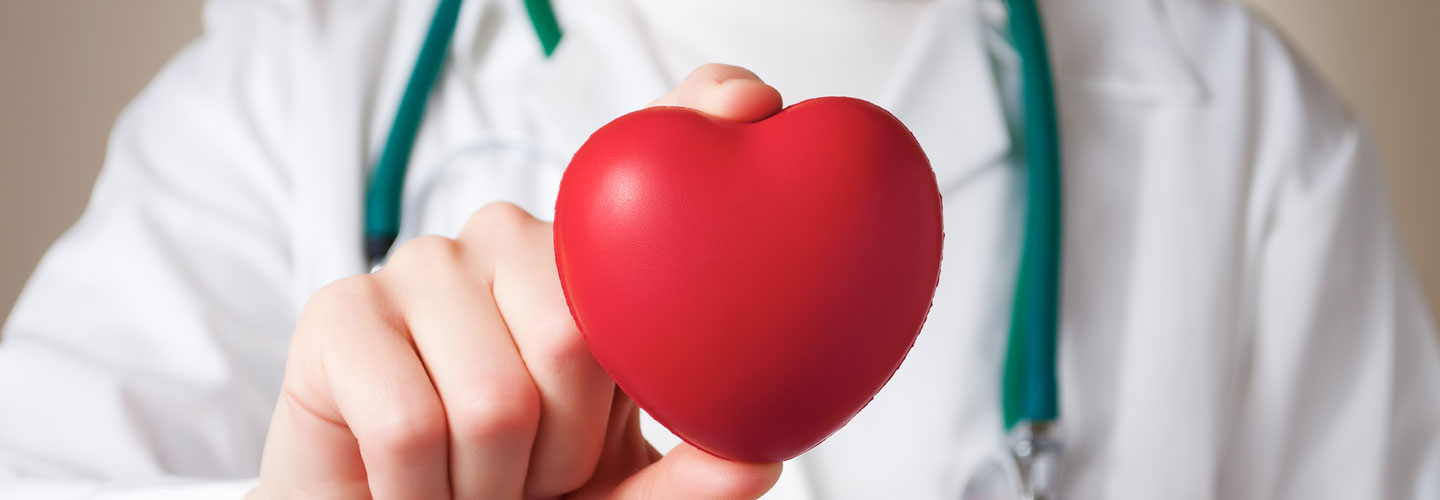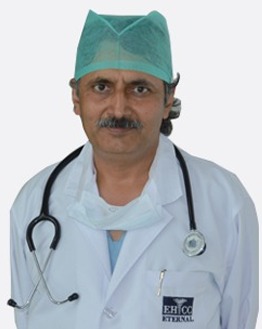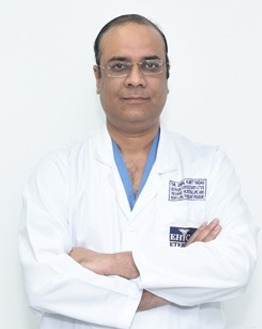Heart failure, also referred to as congestive heart failure, is a serious condition marked by the inability of the heart muscles to pump blood effectively. This is due to the weakening of the muscle, which may be due to underlying health issues like elevated blood pressure and narrowed arteries, or injuries sustained in an accident.
What are the symptoms of heart failure?
Not all patients suffering from heart failure necessarily experience the same symptoms, and these vary from one person to another. Some of the common symptoms associated with heart failure include:
- Fatigue
- Abrupt weight loss
- Loss of appetite
- Persistent cough
- Irregularities in heart rate
- Palpitation
- Abdominal bloating
- Breathlessness
- Swelling in the lower limbs
Treatments available for heart failure management
The treatment protocol depends upon the severity of the patient's condition. Initial symptoms improve within no time, yet regular checkups are a must.
Pharmacological treatment
This involves the use of various medications which primarily focus on relieving the symptoms and preventing further aggravation of the patient's condition. These include blood thinners, angiotensin-converting enzyme inhibitors, beta-blockers, calcium channel blockers, etc
- Medicines can help with the following:
- Enhancing the heart's ability to carry out its function of pumping blood
- Reducing blood clots
- Bringing down the cholesterol levels
- Replenishing the potassium levels
- Getting rid of excess sodium
Surgical treatment
Bypass surgery - Also known as coronary bypass surgery, it involves the use of a healthy piece of an artery, taken from some other part of the patient's body, and attaching it to the blocked coronary artery to create a separate route that allows the blood to bypass the blocked section.
Angioplasty - It is a minimally invasive, catheter-based procedure that aims at removing the arterial blockage. The catheter, with an inflatable balloon fixed on one of its ends, is inserted in one of the major arteries via the groin or a small incision in the patient's body. The capacitor is then directed towards the affected artery using the imaging guidance technique. Once the catheter is in position, the balloon is inflated to open the narrow walls. If our experts may feel the need, they may insert a stent alongside.
Pacemaker - Pacemaker is a small, electrically charged device that is surgically implanted inside the patient's chest with the aim of controlling heart rhythms. It works by slowing down your heart rate when your heart is beating too fast and elevating your heart rate when it is beating too slow. These are usually used along with pharmacological treatments or even bypass surgery.
ICD - ICD stands for implantable cardioverter-defibrillator. Just like a pacemaker, ICD is also a battery-powered device that helps to trace any abnormality in your heart rhythm and generate an electric shock to address the same. This shock helps in restoring the normal heart rhythm. ICD is usually recommended to patients with a low ejection fraction, that lies below 35 per cent.
LVAD - LVAD stands for left ventricular assist device. It is an electromechanical device that helps in assisting cardiac circulation. It may be recommended as a bridge to transplant therapy for patients who are waiting for a heart transplant or destination therapy for patients who are not eligible for the transplant. Portable LVADs are also available nowadays and these can be used for weeks or months at a stretch.
ECMO - ECMO Or extracorporeal membrane oxygenation is its therapy recommended to patients with acute decompensated heart failure that has resulted in a cardiac arrest. It is usually the end resort when all other treatments have failed, and the patient has been recommended to go for a heart transplant. We offer both Veno-Arterial ECMO, as well as Veno-Venous ECMO.
Heart transplant - It refers to the replacement of the patient's heart with a healthy heart taken from a suitable donor. A heart transplant is usually the last resort of treatment recommended in the final stage of heart failure. Depending upon the area of the heart that has been affected, our experts may replace only a portion of your heart or all of it.
Why Eternal Hospital?
At Eternal Hospital, we have a highly qualified and dedicated team of cardiologists who are always committed to providing the latest and most advanced medical care to all our patients. Being a trusted name in healthcare, we act compassionately while ensuring confidentiality to those who need it. We have set high standards in patient-centric premium care along with outstanding patient safety and exceptional maintenance in a timely manner. We adhere to the use of up to the minute innovations to offer state-of-the-art treatments to our patients with unparalleled results.



